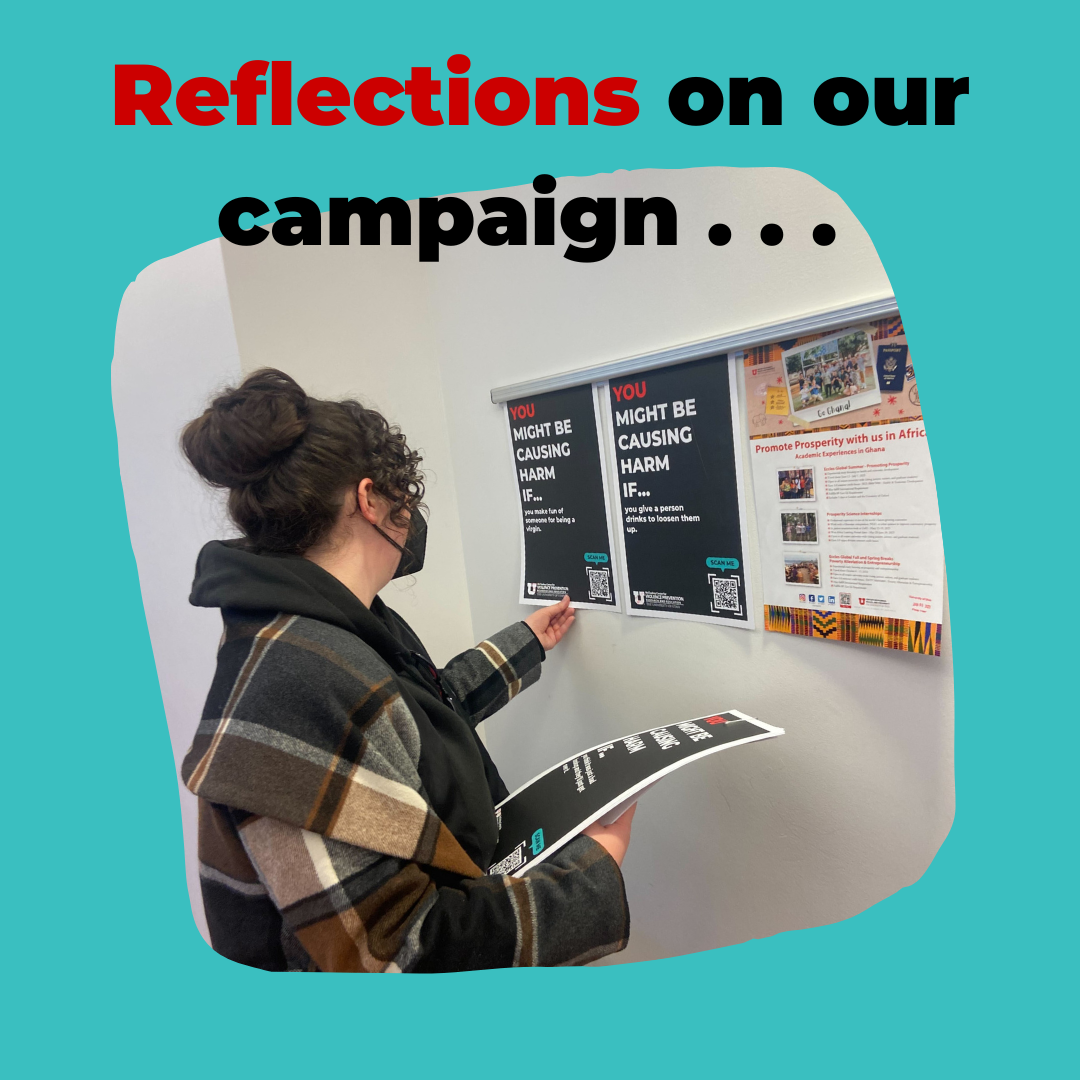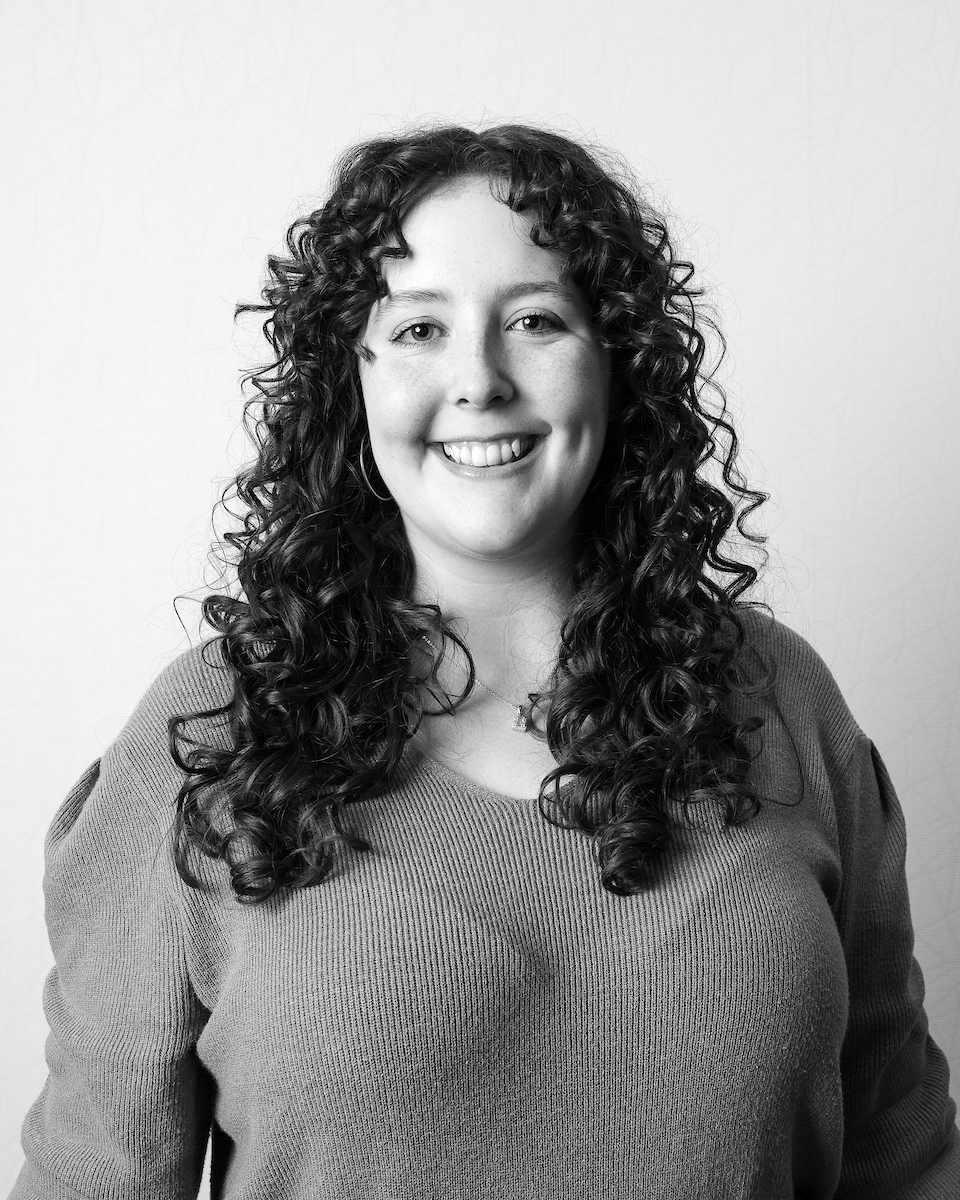
By Lauren Rives
The McCluskey Center for Violence Prevention Research and Education officially implemented our poster campaign, “You Might Be Causing Harm If…” on January 17. The student staff members came up with this idea almost a year ago, so it’s been in the works for quite a while. We wanted to be very intentional with this, both in what we targeted and in our language use.
Some of you may be wondering what motivated us to specifically address certain topics in this campaign. The eight behaviors addressed are by no means an exhaustive list of harmful behaviors. There is, unfortunately, much more that needs to be discussed and confronted when it comes to sexual violence. These eight issues were chosen simply as a starting point. We’d repeatedly observed these things when studying research on sexual violence, so we knew they were a frequent occurrence and we felt passionately about just starting with something to change campus culture.
Others may be wondering why we settled on “You Might Be Causing Harm If…” as the title of our campaign. This wording of “might” may be confusing, as our blog posts for each of the eight behaviors clearly state how these actions can cause harm. This wording wasn’t a trivial choice or whim; it was deliberate.
We chose “might” to invite the people who are doing these things to consider how and why these acts are harmful. If these behaviors were obviously harmful to every single person on this Earth, people would not be causing harm at the rates that they are. Instead, these behaviors have become so normalized that it’s hard to acknowledge their harm-causing potential, especially since we live in a world where being a person who has caused harm carries immense stigma.
Most of the individuals causing harm are ordinary people—those you might otherwise call a good person. If everyday individuals are bluntly told that they’re a perpetrator if they do X, Y or Z, the fear of stigma and social consequences will overrule any desire to acknowledge what occurred. We’d remain in an endless cycle of silence and violence. Some may even do these acts more once being confronted with their harmful behaviors, as the study linked here found.
We will never see a world free of violence if we alienate those who cause harm from conversations about what violence can look like. So, to avoid pushing people away from talking about the harm they might have caused, we used the word “might.” It’s not a perfect solution, but it was *a* solution—one method of addressing a widespread, deeply systemic issue.
In the end, this campaign is for the people who are causing harm—those who haven’t realized the consequences of certain behaviors, those who never thought it would be them, those who want to be better and those who can be better if we give them the opportunity to acknowledge their actions.
 Lauren Rives (she/her/hers) is double majoring in psychology and gender studies, with interest in studying intersectionality, the impacts of the carceral justice system and gender development. She is a student staff member at the McCluskey Center for Violence Prevention Research & Education.
Lauren Rives (she/her/hers) is double majoring in psychology and gender studies, with interest in studying intersectionality, the impacts of the carceral justice system and gender development. She is a student staff member at the McCluskey Center for Violence Prevention Research & Education.
